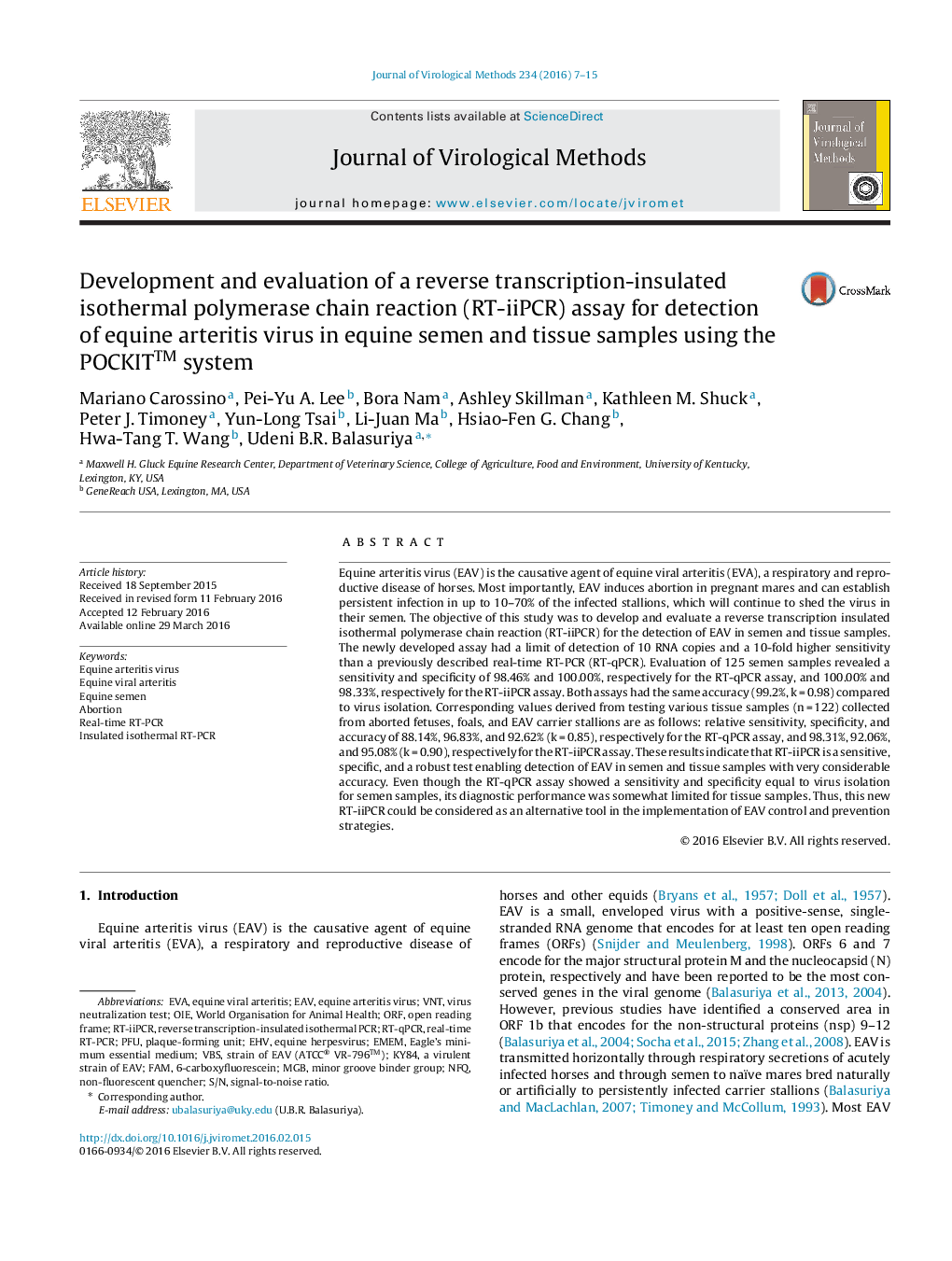| Article ID | Journal | Published Year | Pages | File Type |
|---|---|---|---|---|
| 6132802 | Journal of Virological Methods | 2016 | 9 Pages |
Abstract
Equine arteritis virus (EAV) is the causative agent of equine viral arteritis (EVA), a respiratory and reproductive disease of horses. Most importantly, EAV induces abortion in pregnant mares and can establish persistent infection in up to 10-70% of the infected stallions, which will continue to shed the virus in their semen. The objective of this study was to develop and evaluate a reverse transcription insulated isothermal polymerase chain reaction (RT-iiPCR) for the detection of EAV in semen and tissue samples. The newly developed assay had a limit of detection of 10 RNA copies and a 10-fold higher sensitivity than a previously described real-time RT-PCR (RT-qPCR). Evaluation of 125 semen samples revealed a sensitivity and specificity of 98.46% and 100.00%, respectively for the RT-qPCR assay, and 100.00% and 98.33%, respectively for the RT-iiPCR assay. Both assays had the same accuracy (99.2%, k = 0.98) compared to virus isolation. Corresponding values derived from testing various tissue samples (n = 122) collected from aborted fetuses, foals, and EAV carrier stallions are as follows: relative sensitivity, specificity, and accuracy of 88.14%, 96.83%, and 92.62% (k = 0.85), respectively for the RT-qPCR assay, and 98.31%, 92.06%, and 95.08% (k = 0.90), respectively for the RT-iiPCR assay. These results indicate that RT-iiPCR is a sensitive, specific, and a robust test enabling detection of EAV in semen and tissue samples with very considerable accuracy. Even though the RT-qPCR assay showed a sensitivity and specificity equal to virus isolation for semen samples, its diagnostic performance was somewhat limited for tissue samples. Thus, this new RT-iiPCR could be considered as an alternative tool in the implementation of EAV control and prevention strategies.
Keywords
EVAVNTEHVOIEEAVMGBEMEMVBSRT-qPCRFAMORF6-carboxyfluoresceinS/NEquine viral arteritisVirus neutralization testEagle’s Minimum Essential MediumReal-time RT-PCRWorld Organisation for Animal HealthAbortionopen reading frameSignal-to-noise ratioplaque-forming unitEquine arteritis virusEquine herpesviruspfu
Related Topics
Life Sciences
Immunology and Microbiology
Virology
Authors
Mariano Carossino, Pei-Yu A. Lee, Bora Nam, Ashley Skillman, Kathleen M. Shuck, Peter J. Timoney, Yun-Long Tsai, Li-Juan Ma, Hsiao-Fen G. Chang, Hwa-Tang T. Wang, Udeni B.R. Balasuriya,
